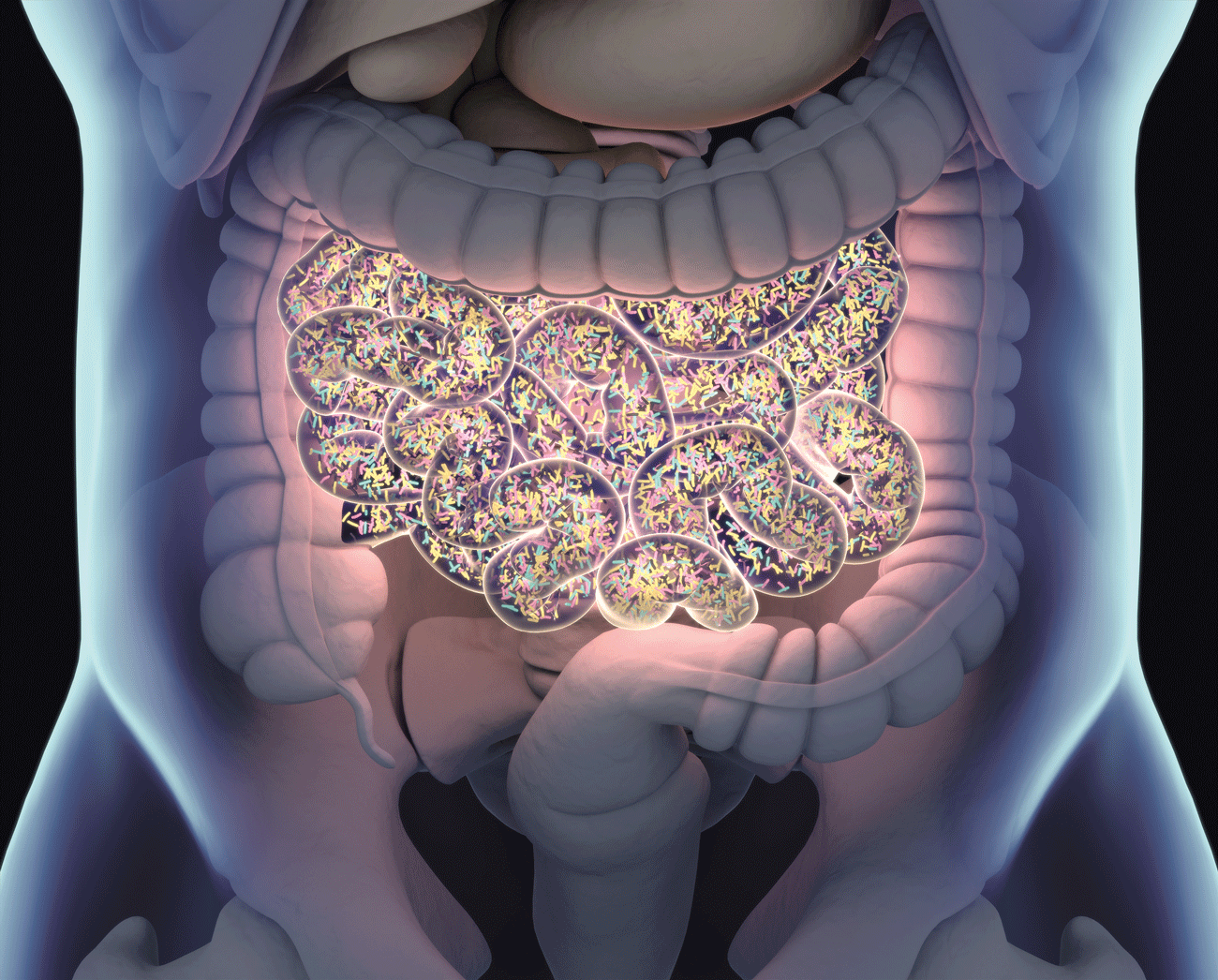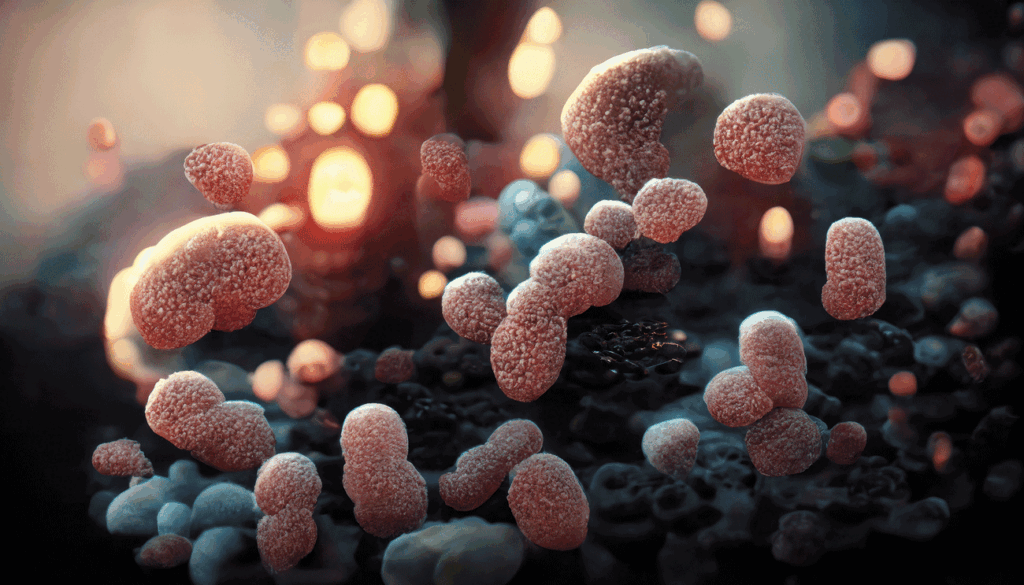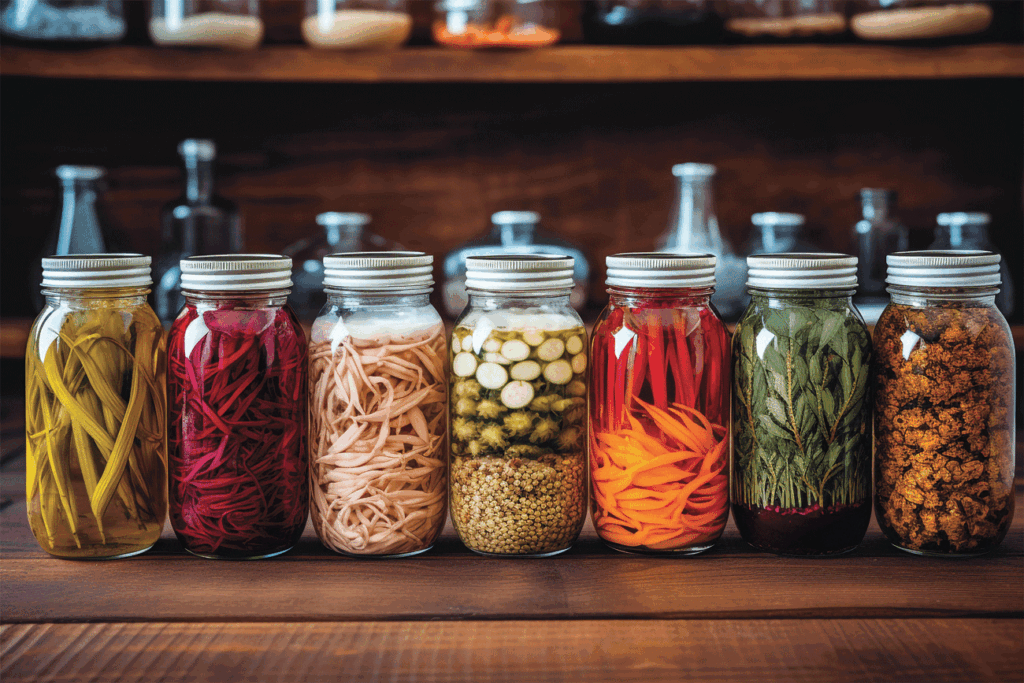
by Penny Lynch // Bacteria inside the small intestine, concept, 3D representation
The gut microbiome refers to the diverse community of microorganisms, mostly bacteria but also includes viruses, fungi, and other microbes, that inhabit the gastrointestinal tract of humans. In recent years scientists have uncovered the remarkable influence the gut microbiome has on our overall health and the vital role these microorganisms play in many of our body’s processes, such as digestion, nutrient absorption, immune function, and metabolism.
The gut microbiome is incredibly diverse, with trillions of microorganisms belonging to thousands of different species. A bit like your fingerprint, each person’s gut microbiome is unique, shaped by factors such as genetics, diet, lifestyle, environment, medications, and early-life experiences.

The gut microbiome interacts closely with the host organism, which is you, influencing both its health and disease states. Research has linked alterations in the composition and function of the gut microbiome to a wide range of health conditions, including gastrointestinal disorders, metabolic disorders, autoimmune diseases, allergies, and even mental health disorders.
Understanding the gut microbiome and its role in human health is an area of active research, with ongoing efforts to understand its complexities and potential therapeutic applications. But what we do know is that maintaining a healthy gut microbiome through dietary interventions, probiotics, prebiotics, and lifestyle modifications is an important aspect of supporting overall health and well-being.

How can I protect my gut microbiome?
- Embrace a diverse diet and prioritise whole, unprocessed foods and incorporate a colourful array of fruits, vegetables, whole grains, legumes, nuts, and seeds into your meals.
- Include fermented food into your diet daily, such as yogurt, kefir, sauerkraut, kimchi, tempeh, and kombucha to introduce beneficial bacteria into your gut.
- Consume prebiotic-rich foods to fuel the growth of beneficial bacteria with prebiotic fibres found in onions, garlic, leeks, asparagus, bananas, and oats.

Cultivate Gut-Friendly Lifestyle Habits by Managing stress
- Practicing mindfulness, deep breathing exercises, yoga, or meditation to reduce stress levels and promote gut health.
- Staying physically active will help to support a diverse and resilient gut microbiome.
- Prioritise quality sleep by aiming for 7-9 hours of restorative sleep each night to optimise gut function and microbial balance.
- Where possible, only use antibiotics when prescribed by a healthcare professional to avoid disrupting the delicate balance of your gut microbiome.
And if in doubt head to the lovely ladies in The Natural Life Shop who are always happy to advise and have plenty of products that will help you look after your gut health.











